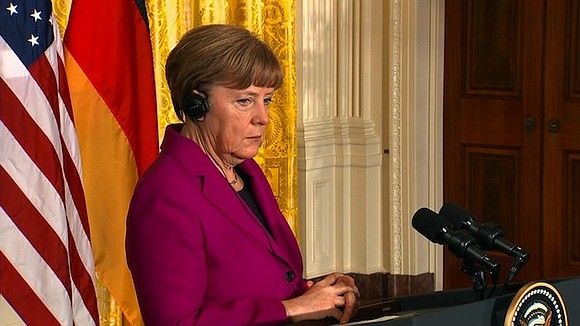Far-right Party AfD in Disarray a Day After Historic German Election Result
CNN/Stylemagazine.com Newswire | 9/25/2017, 4:29 a.m.

By Schams Elwazer and Hilary Clarke
(CNN) -- The leadership of the hardline Alternative for Germany party was in disarray Friday, a day after its historic breakthrough in the German elections delivered a stinging blow to Chancellor Angela Merkel's authority.
At a press conference in Berlin that was intended to burnish the AfD's success, party chairwoman Frauke Petry walked out, declaring that she would not sit with the party in the Bundestag and saying that it had to address dissent within its own ranks.
AfD co-leader Alexander Gauland repeatedly called after Petry, saying "I do not approve of this behavior." He described the walkout as a bombshell.
The AfD won 13% of the vote and came a stunning third place behind the main center-right and center-left parties. It becomes the first far-right party to enter the Bundestag since 1961. But it has been riven with internal strife: Petry has been regarded as a more moderate force in the party, arguing that it had to break with the far right in order to move from opposition into government.
"Today we must be open that there is internal dissent within the AfD," Petry said at the press conference. "We must not be silent about this. The community needs to know that we have controversial debates."
She told reporters later that she would sit in the Bundestag as an independent.
Merkel punished
As the AfD's divisions burst into the open, Merkel was beginning the delicate task of building a new coalition government. Preliminary results showed Merkel's CDU/CSU group would still be the largest bloc in the Bundestag, but with its lead cut to 33.5%, down from 41.5% in 2013 -- the party's worst result since 1949.
Voters punished Merkel for her decision in 2015 to allow more than a million refugees into the country at the height of the European migrant crisis.
Her former partners in government, the center-left SPD, decided to return to opposition after exit polls suggested its share of the vote fell to 21.6% from 25.7% in 2013. It was the SPD's lowest share of the vote since 1945.
To secure her fourth term in office, Merkel is expected to attempt to make a deal with the Green Party and the FDP -- the so-alled "Jamaican coalition" option (the green and yellow of the two smaller parties combine with the black of the CDU to resemble the flag of Jamaica). The new grouping would be significantly weaker than the previous government, a "grand coalition" between Germany's two biggest parties.
Merkel said she was confident that a new government would be in place before Christmas, and noted that no other group could build a coalition against her. But she faces a tough battle to build a government that is strong enough to hold back the rise of the AfD.
There is no guarantee that Merkel will come to a deal with the FDP and the Greens -- both parties bitterly oppose each other and will be wary of the fate of the SPD, which suffered from its proximity to Merkel in the last government and struggled to mount an effective election campaign under leader Martin Schultz.
Addressing her supporters in Berlin Sunday night, Merkel pledged to try and understand the concerns of voters who defected to the far right. "There's a big new challenge for us, and that is the entry of the AfD in the Bundestag," she said. "We want to win back AfD voters."
The AfD polled particularly strongly in the former East Germany, which includes Berlin, attracting 21.5% of the vote, according to exit polling conducted by by Infratest Dimap. In the West, it scored about 11%, the projections said. The results put the AfD on course to become the second largest party in the east, after the CDU.
"First, this is about our success, but also about the failure of others," Gauland told reporters. "In the Bundestag we want to be a clear opposition," he said.



